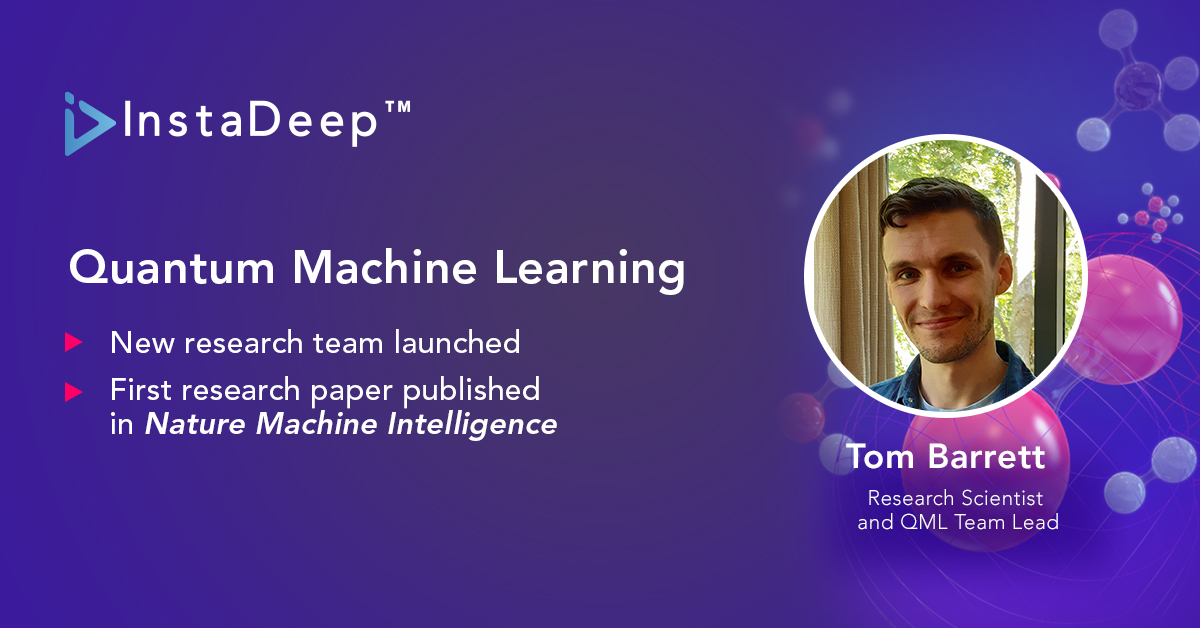InstaDeep is pleased to announce the formation of a new Quantum Machine Learning (QML) team within the company’s well-established research department. The announcement coincides with the publication of the “Autoregressive neural-network wavefunctions for ab initio quantum chemistry” research paper in the leading science journal, Nature Machine Intelligence.
Publication in Nature Machine Intelligence
The paper was written by Dr Thomas (Tom) Barrett, Research Scientist at InstaDeep, in collaboration with Prof A. I. Lvovsky and Aleksei Malyshev from the Department of Physics at the University of Oxford, and applies machine learning to the canonical challenge of modelling complex quantum systems. It is InstaDeep’s first published research into the growing intersection of AI and quantum computation.
Specifically, the work shows how AI can accelerate the process of finding a molecule’s ground (lowest energy) state from first principles. Finding the true quantum state of a molecule provides access to its chemical properties, however, in practice, these states become increasingly challenging to model as the molecule increases in size. Our approach enhances classical numerical methods with the modelling power and scalability of neural networks that both encode known physical symmetries and can be efficiently optimised. Further details can be found in our Research blog and the full manuscript is available on the Nature Machine Intelligence website.
Quantum Machine Learning at InstaDeep
The QML team will be led by Tom, and will focus on the intersection of quantum and AI technologies. These fields have been developing at pace in recent years, with noisy intermediate-scale quantum computing hardware available and AI continuing to push the boundaries of what can be achieved in the most complex of problem settings. Whilst fault-tolerant quantum computers are yet to be realised, practical quantum viability, and even advantage, on specific tasks is within our grasp. With quantum computing holding the potential to revolutionise many of AI’s most pressing endeavours – such as drug design and tackling classically intractable optimisation problems – establishing the QML team is another step in InstaDeep’s ongoing journey to bring bleeding-edge solutions to the world’s hardest problems.
InstaDeep will be expanding the team of QML-focused research scientists and engineers over the coming months. Informal enquiries can be sent to Tom (t.barrett@instadeep.com), and details of all the new opportunities will be listed on the company’s website.
